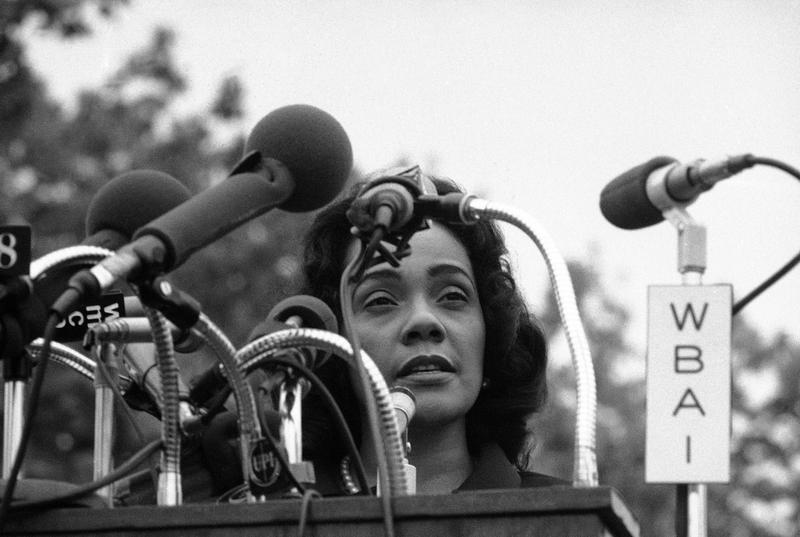
Just three weeks after the assassination of the Rev. Dr. Martin Luther King Jr., Coretta Scott King traveled to New York City to deliver an anti-war speech to thousands of people gathered in Central Park. She stood on the stage where he husband had been scheduled to stand, giving a speech based on notes found in his jacket pocket after he died. I simply read them to you as he recorded them,” Scott King solemnly told the crowd. “And I quote: Ten Commandments on Vietnam.”
King’s commandments condemned the U.S. government’s narrative and framing of the war, rejecting the notion of America as a liberating force for the Vietnamese people. Later in the speech, Scott King, who had long opposed the Vietnam War and convinced her husband to come out publicly against it, went on to expand on his Ten Commandments. A passionate advocate for the poor, Scott King explained how America’s investment in the war and its disregard for poor people were intimately intertwined.
“[There is a] kind of seamlessness with which she's moving back and forth between [what is] wrong with what the United States is doing in Vietnam with what is wrong with how the United States treats its citizens at home,” said Jeanne Theoharis, political science professor at Brooklyn College who has written extensively about Scott King’s influence on the civil rights movement.
Theoharis says history misremembers Coretta Scott King as a bystander to the tumultuous era of the 1950s and 1960s. To truly understand the political evolution of Dr. King, and how the civil rights movement progressed after his death, Theoharis suggests taking a closer look at Coretta Scott King.
"I think sometimes the way we mark the assassination of Dr. King is this long ago horrible tragedy that kind of ends the movement. And I think when we center Coretta Scott King, we see that the movement continues," said Theoharis. "We see that the ideas that animated Dr. King's life carry on in people like Coretta Scott King, and get expanded with the work that she does for the next 40 years."
Those who knew Scott King personally remember her as a warm and gracious woman. Suzan Johnson Cook, a reverend and former ambassador-at-large for religious freedom under President Barack Obama, first met Scott King at an event in New York City when Johnson Cook was a young girl.
"She gave me her address, I wrote her a thank you note, a handwritten one. She wrote me back personally, and that was the beginning of our relationship," Johnson Cook said. "For a ten year old girl to receive a note from Mrs. Coretta Scott King in those days was such a marvelous move."
Given Scott King's devotion to civil rights, Johnson Cook said her legacy as a leader of the movement should be widely recognized.
"I knew her when she was great and alive, but I'm glad the rest of the world is coming to know who Coretta Scott King was," said Johnson Cook. "Not just meek and by the side, but in the front."
For more segments in our series, 1968: 50 Years Later, visit our series page.
